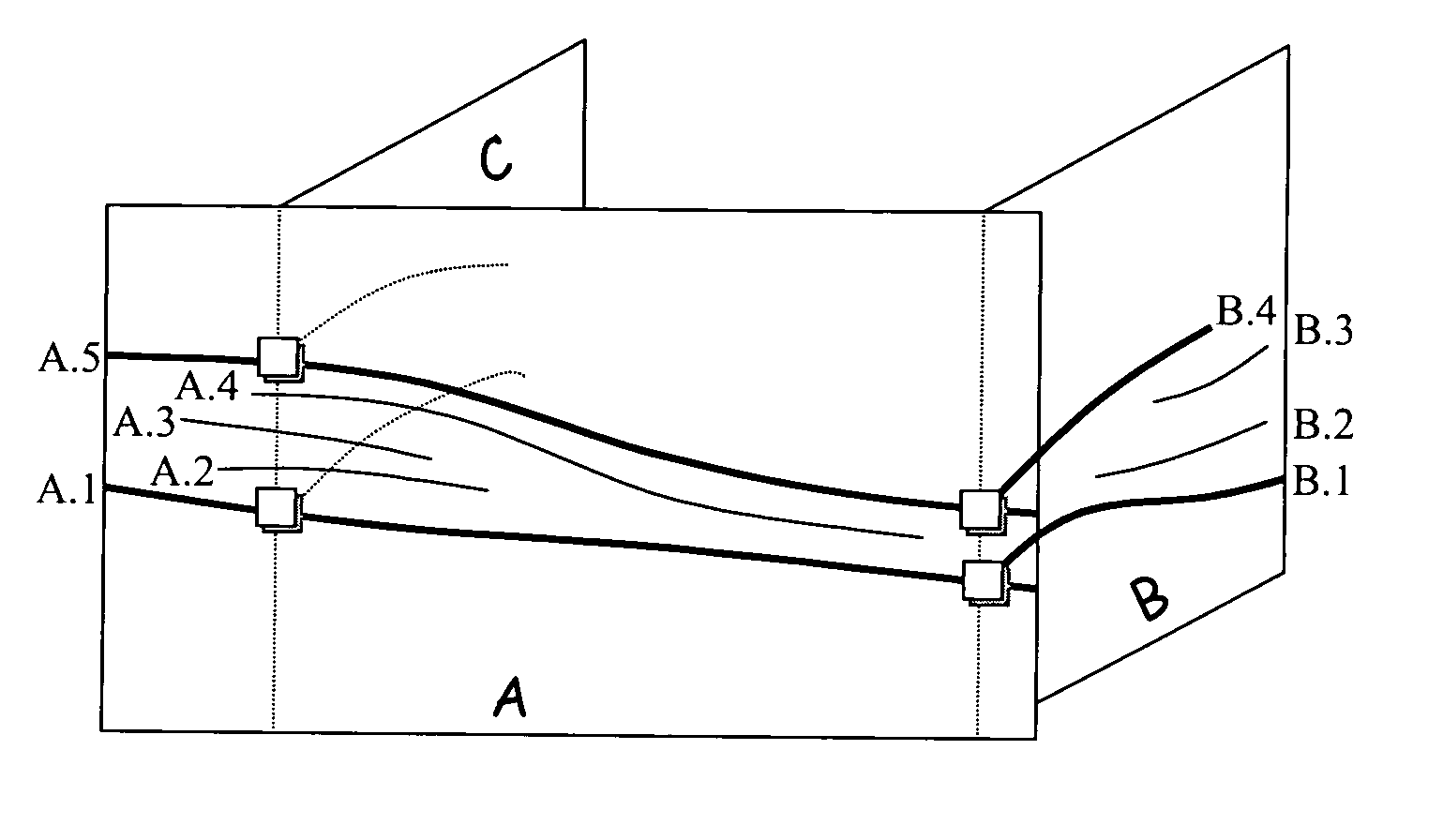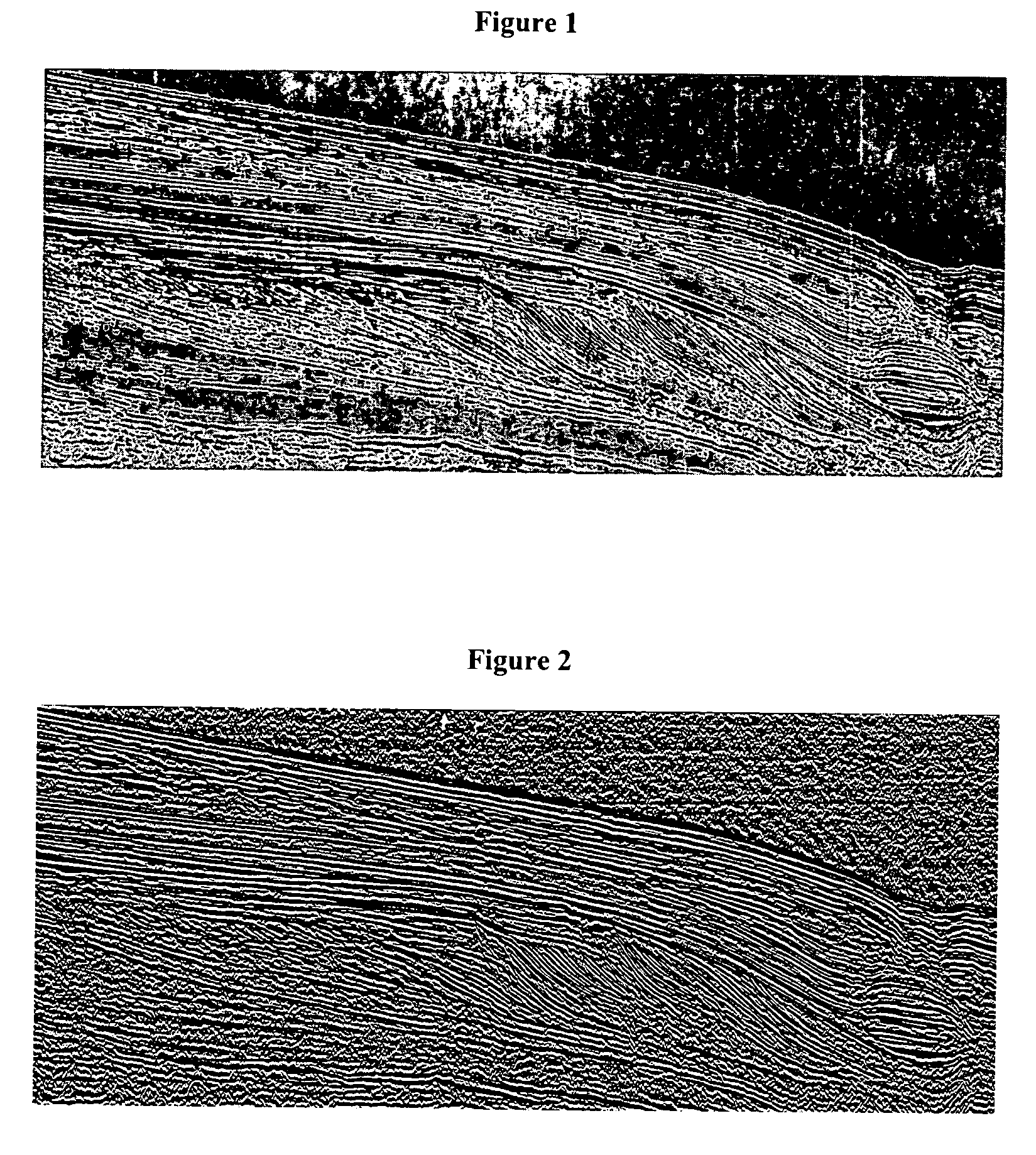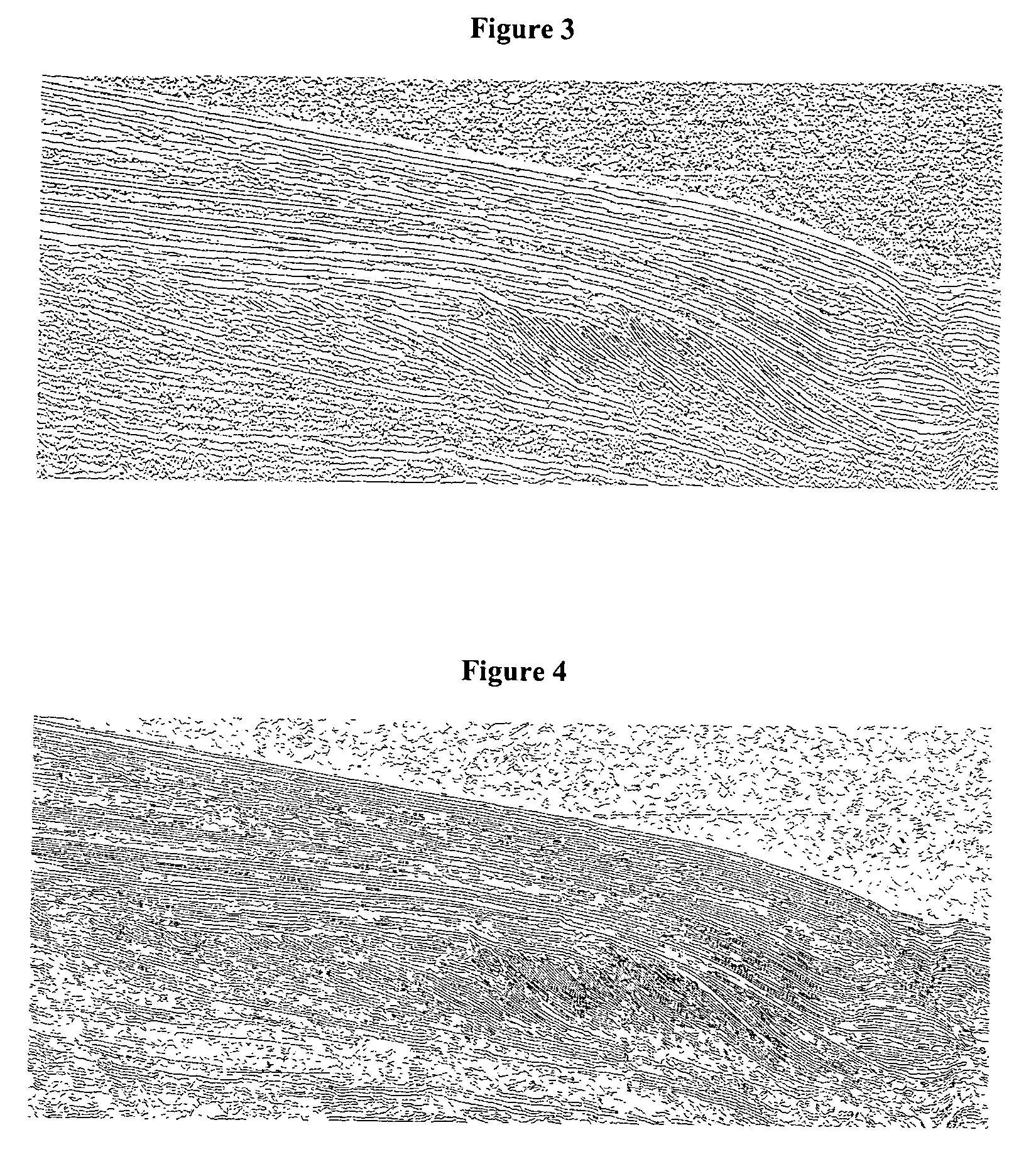Method of sedimentologic interpretation by estimation of various chronological scenarios of sedimentary layers deposition
- Summary
- Abstract
- Description
- Claims
- Application Information
AI Technical Summary
Benefits of technology
Problems solved by technology
Method used
Image
Examples
Embodiment Construction
[0058] The method according to the invention applies to a seismic image. A seismic image is, horizontally, a spatial representation and, vertically, a temporal representation of the amplitudes of the acoustic signals recorded. These amplitudes generally correlate from one trace to the next, which is translated on the pixels making up the seismic image into lineations, that is sub-horizontal lines, more or less rectilinear, thick and continuous. These lineations represent the interfaces between sedimentary layers. Various color scales are conventionally used to represent these amplitude variations in an image. A two-dimensional seismic image represents a vertical seismic section of the subsoil by means of a continuous (levels of grey for example) or non-continuous color scale.
[0059] The aim of the method according to the invention is to automatically extract, by image processing, pertinent information for sedimentologic interpretation in order to reconstruct the depositional conditi...
PUM
 Login to View More
Login to View More Abstract
Description
Claims
Application Information
 Login to View More
Login to View More - R&D
- Intellectual Property
- Life Sciences
- Materials
- Tech Scout
- Unparalleled Data Quality
- Higher Quality Content
- 60% Fewer Hallucinations
Browse by: Latest US Patents, China's latest patents, Technical Efficacy Thesaurus, Application Domain, Technology Topic, Popular Technical Reports.
© 2025 PatSnap. All rights reserved.Legal|Privacy policy|Modern Slavery Act Transparency Statement|Sitemap|About US| Contact US: help@patsnap.com



